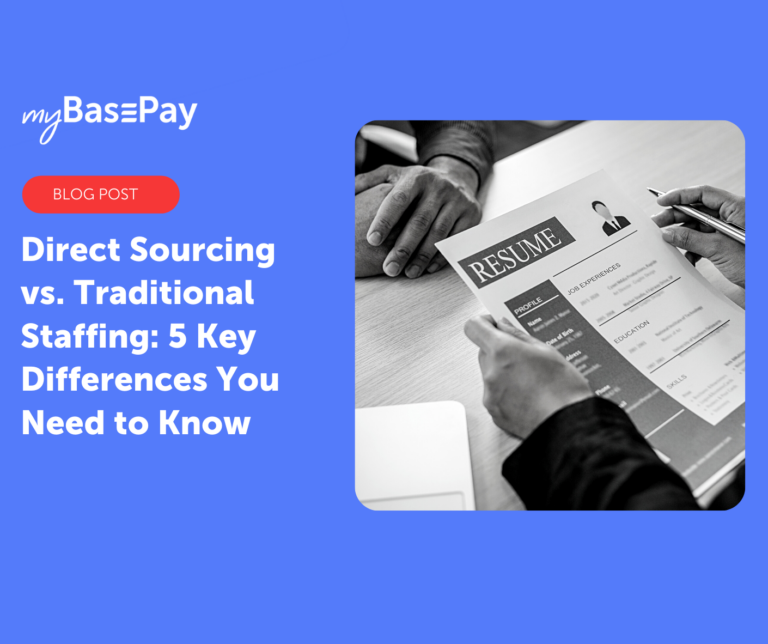How to Recruit, Train, and Retain Skilled Recruiters (and Sales Staff)
Recruiting a recruiter: it sounds relatively simple, but finding the right recruiter for your company can make all the difference in your quality of hires — and the quality of your business. Recruiters are charged with the responsibility of selling their services to candidates and corporate clients, just as salespeople are responsible for selling to potential clients.
The role of a recruiter is integral to your business’s future success. Whether they’re a third-party recruitment company, or you’re hiring directly, a recruiter’s goal is to find and attract top talent according to your organization’s needs. So, it makes sense that putting these tasks in the hands of the right person is a risky decision.
But it doesn’t stop there: just as much emphasis should be placed on hiring the right sales staff.
Similar to the purpose of recruiters, your sales staff is in charge of finding quality business contacts and clients for your company. While recruiters are in charge of prospecting for top candidates to place in sales positions, your sales staff is responsible for sourcing and selling their services to clients and business contacts.
When it comes to the overall growth of a company, these two positions go hand-in-hand. That’s why it’s essential to prioritize the process of hiring, training, and retaining recruiters and sales staff.
Emphasize the Importance of Relationships
In both sales and recruitment, success is dependent on relationships and connections between clients. As you’re screening and talking with recruiters and sales staff candidates, be prepared to discuss relationship-building techniques with potential clients and job candidates.
When it comes to recruiters, it’s important for them to establish a good relationship with candidates. Ensuring a candidate feels valued and paid attention to can make all the difference between an average hire versus a top-talent hire. Doing so will create a sense of trust in the candidate that the recruiter will take care of their best interests.
When it comes to salespeople, their success comes from their ability to close a sale. To do so, they must establish a solid relationship with their potential client. From the cold-call stage, a good salesperson should be able to show themselves friendly, honest, and responsive.
Stress Active Listening
A huge building block of relationships between recruiters/sales staff and their potential candidates/clients is active listening. In the recruiting industry, it’s often agreed that no skill will serve you better than the ability to listen, particularly paying attention to what a candidate desires and demands from the role.
With active listening, that means asking the right follow-up questions, too. When interviewing a recruiter, make sure they understand this quality, and why it matters when they’re talking to potential candidates.
For example, if they have a candidate say they prefer to be “self-directed,” ask them what they mean. When you better understand the candidates’ preferences and tendencies, you can better hire the right person for the role.
Likewise, when interviewing sales staff, they should understand how to start a conversation between themselves and the client. When selling a product, the first instinct might be to discuss solely the product — but first, you must build rapport.
Learn about the problem(s) the client is facing by listening, and then introduce how your product or service might be a solution. By showing yourself an active listener, your client will be more appreciated.
Set Up Practice Interactions
Fast-forward through the recruiting process — now that you’ve found the right person for the job, it’s time to start the training process. A great way to ease a new recruiter or salesperson into their role is by setting up real-life scenarios they might face in their daily operations.
From handling objections, conducting cold calls, and practicing building rapport with prospective clients, conducting these practical interactions with your new salesperson can help drive engagement as they learn how to interact with the product, think critically, make decisions, and see the consequences of those decisions.
For recruiters, these real-life situations could mean researching the roles they’re hiring for, conducting mock interviews, assessing potential candidates, and identifying what makes a top-talent candidate. Not only will this offer your new recruiter more exposure in the marketplace, but it will allow them to achieve greater positioning in the hiring process.
With either a recruiter or a salesperson, much of their success had to do with their ability to think on their feet. These real-life scenarios offer opportunities for them to learn how to do just that.
Incorporate Check-Ins
Once you’ve hired and successfully trained your recruiter or salesperson in your company, the next step is to work on your retainment strategies, and incorporating check-ins with your new hires is perhaps the easy way to start.
Most companies conduct a 30-60-90-day method, which simply means checking in with your new hire every 30, 60, and 90 days. This allows you both to re-align on expectations for the role and the company.
Since the first six months of an employee’s tenure are the most critical, it’s important to establish this line of communication early on. A well-organized check-in strategy can be a great opportunity to get constructive feedback from your new hires and improve the workplace culture.
When a company does not have a set process to see how a new hire is integrating, the new hire will typically feel ignored, undervalued, or unappreciated for their skills and expertise.
To ensure your company leaders interact with new employees, you need to develop a structured check-in process. Some key objectives should be to identify if they’re comfortable, if they understand their work, and if they’re satisfied with their colleagues. Then, whatever the feedback may be, be sure to act on it and make changes accordingly.
Moving Forward …
When it comes to hiring new recruiters or sales staff, the process can be overwhelming — but that doesn’t mean it has to be. We understand that you want the best person for your business. By following through with these tips outlined in this article, you can obtain greater peace of mind about the success of your newly hired employees.
Author: Cesar Jimenez, myBasePay CEO
Cesar A. Jimenez is an entrepreneur, investor, and military veteran with over 25 years of staffing industry expertise successfully leading technology staffing organizations. His expertise in the IT industry allows him to use his experience as a thought leader for talent acquisition, staffing, IT, and recruitment technologies with a passion for contingent workforce solutions. Cesar has held various leadership roles for both a global staffing organization and technology solutions companies. This expertise has enabled him to develop alternative workforce models that provide the agility for organizations to be competitive in today’s marketplace. In his spare time, he enjoys spending time with hisfamily, working out, and coaching high school baseball players.






